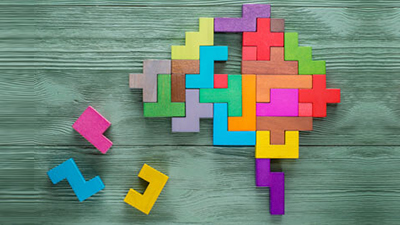New legislative requirements to support the wellbeing and mental health of children
It’s taken some time but at last we see an overhaul of the Mental Health Act, some 40 years since its enactment. The first reading of the new white paper seeks to amend the Act and address many of the inequalities in currently faced in mental health care.
Alongside this, HM Government want all schools to have a Designated Mental Health Lead (DMHL) appointed by 2025. This new strategic role is charged with the responsibility of establishing a whole school approach to mental health, which includes both preventative activity and the promotion of good mental wellbeing and resilience among pupils and staff.
The designated senior lead for mental health role
Protecting the mental health and wellbeing of all pupils is essential, important as we know from NHS Digital survey data that when assessed, one in eight of 5 to 19-year olds had at least one mental health disorder; with emotional disorders such as anxiety and depression being the most prevalent type of disorders experienced. All professionals working with children and young people have a role to play, so can we improve mental health in school settings? Most importantly, practice must be guided by research and high quality training undertaken if we are to tailor provision appropriately. Therefore if DMHLs are to lead the way forward, we must invest in their CPD and ongoing support.
Each designated senior lead for mental health should be particularly aware of the groups known to be at a higher risk of developing mental health difficulties and ensure both policy and practice is robust in supporting them. Such groups include:
- Looked-after and adopted children;
- Children in Need;
- Children with a social worker;
- Children in care or who have left care;
- Children affected by socio-economic disadvantage;
- Those exposed to thematic and / or contextual safeguarding risks e.g. Child sexual exploitation (CSE), Child Criminal Exploitation (CCE), County Lines, Female Genital Mutilation (FGM).

Links between special educational needs and mental health
In addition, research tells us there is a distinct safeguarding link between special educational needs and mental health (pupils with Special Educational Needs and / or Disabilities are recognised as being at a higher level of risk in experiencing mental health difficulties). Appointed DMHLs must work collaboratively with their Designated Safeguarding Leads (DSLs) and Special Educational Needs Coordinators (SENCOs) to ensure mental health and wellbeing needs are firmly on the radar so they can be identified and addressed.
As detailed in my article on changes in KCSIE 2020 , it’s important for all staff to feel confident in undertaking their duty of care and, as legislation develops this especially applies to safeguarding the mental health of pupils. Staff in educational settings are not expected to be mental health professionals and they should never attempt to make a diagnosis of a mental health problem. However, due to their frequency of contact with children they are well placed to identify behaviours presenting as worrying or identify children who may be at risk of developing mental health issues.
What should Designated Mental Health Lead Training consists of?
Without a doubt the DMHL role will be crucial in raising mental health awareness in schools and leading best practice to ensure staff meet their duty of care, however appropriate training and ongoing CPD must be undertaken to facilitate this. As detailed in our Designated Mental Health Lead course, key core training elements should include:
- Understanding the core and broad responsibilities of the DMHL role;
- How they can create and embed a positive whole setting culture in relation to mental health;
- Understanding the link between mental health and behaviour including:
- Mental health problems in children
- Prevalence of mental health problems in children
- Risk and protective/ resilience factors
- How to identify children with possible mental health problems;
- Give them an understanding of the identification and measurement tools available;
- Having an understanding of Adverse Childhood Experiences (ACEs) and how they may impact on wellbeing and mental health;
- Identifying groups at higher risk;
- How to provide support and collaborative working;
- Additional support mechanisms such as:
- Classroom support
- School based mental health programmes
- Therapeutic support
- External support
- How to work with parents and carers.
Some children will experience emotional and or behavioural problems outside the normal range expected for their age. Therefore it is expected that DMHLs will have an understanding of how these experiences are classified and are able to plan support for such children. Such experiences are classified as:
- Emotional disorders e.g. depression, anxiety and phobias;
- Conduct disorders e.g. temper tantrums, anti-social behaviour, aggression, attention deficit hyperactivity disorder and oppositional, defiant or conduct disorders. (These are the commonest behavioural problems in preschool and school age children);
- Hyperkinetic disorders e.g. delays in acquiring skills such as bladder control, speech, social ability. This is common in children with pervasive developmental disorders (autism);
- Attachment disorders e.g. where a child is distressed or socially impaired as a result of abnormal pattern of attachment to parents or main care givers;
- Trauma disorders e.g. post-traumatic stress disorder due to persistent abuse and neglect or having experienced a traumatic event;
- Mental health disorders such as eating disorders, habit disorders, psychotic disorders such as schizophrenia and manic-depressive disorder.
As said before, we shouldn’t expect DMHLs to be mental health experts but, just as we do for our DSLs, we must invest in their CPD to equip them to carry out their role effectively.
Finally, Getting parents on board is crucial
Parents play an important role in promoting their child's mental health and recognising when there may be early signs of difficulties. To support DMHLs promoting this message, we have produced a resource article + a short video Child Mental Health & Wellbeing- 10 Top Tips for Parents which can be made available on their setting’s website parent hub.
SSS Learning Safeguarding Director











